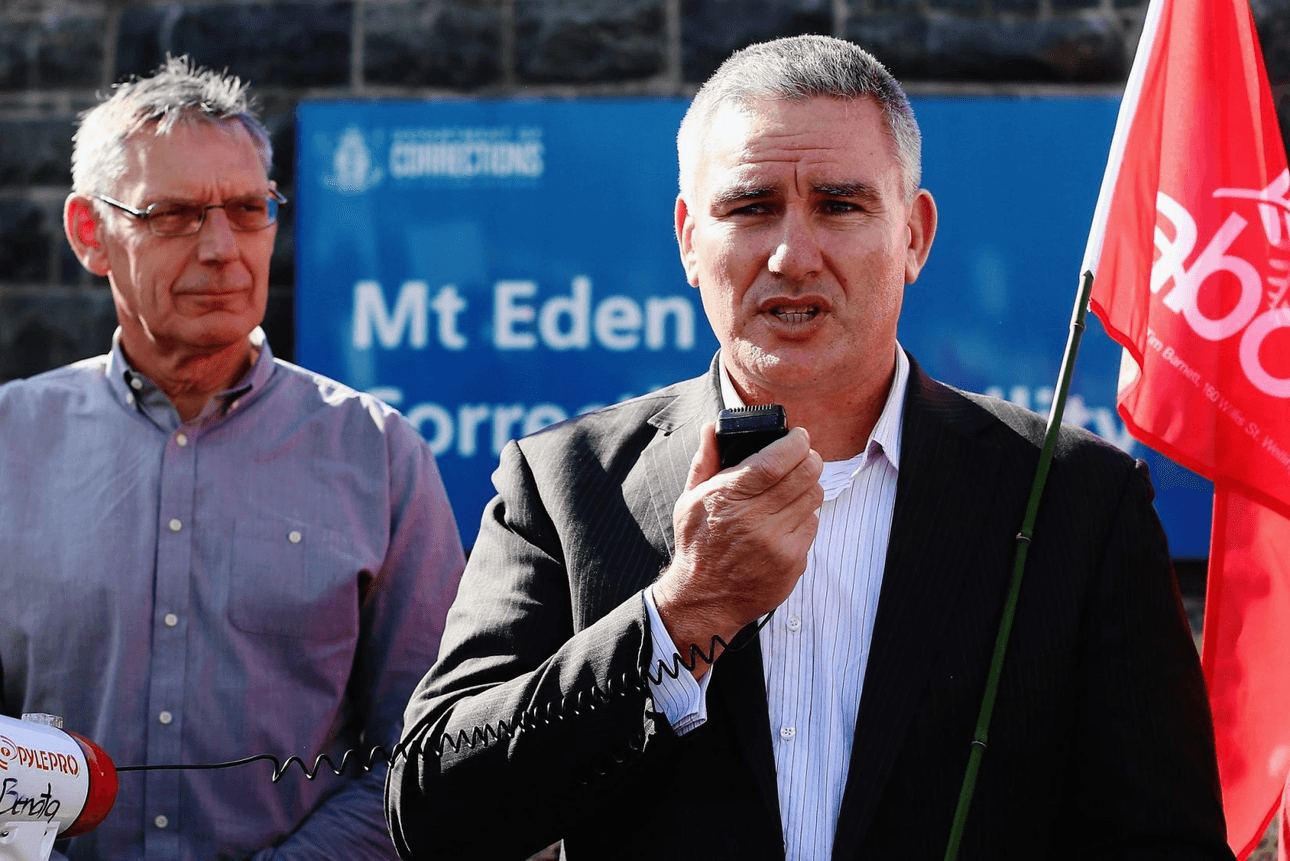Last month the Waitangi Tribunal heard submissions on the current prisoner voting ban, something New Zealand’s Supreme Court has found to be in breach of human rights. Carmen Hetaraka asks: if now isn’t the time for the government to act, then when?
“When you start you’ve got all these principles. And in the political process, you have to hide some of them. So you put them in to a box, like roses. And when you open the box. They’re dead.” – Don Brash (quoting someone a lot smarter than him)
Māori have been filling up prisons for a very long time. There’s a long history of institutional racism in the justice system and police profiling which has heavily affected Māori.
Having worked with both prisoners and ex-prisoners for the duration of my career, I can honestly say that those who end up there are already disempowered before they arrive in prison. The vast majority of them don’t know their reo or whakapapa. They basically don’t know who they are. On top of this, Māori prisoners have usually been subjected to the worst effects of Crown policies; a lot of them have been in state care as youths, and many of them were let down by state agencies during their lives.
To try and solve this crisis, Kelvin Davis has recently announced $98 million to fund programs aimed at breaking the cycle of Māori reoffending and imprisonment. His commitment to the Corrections portfolio can’t be questioned. I’ve seen him at lots of flax roots hui where he listens, is pono and has lots of good ideas to try and solve what’s become a huge blight on our people.
I recently made a submission to the Waitangi Tribunal inquiry on Wai 2870 which focused on Māori prisoner voting rights. A number of people have noted the negative effect removing this right had on both Māori prisoners and the communities they come from. On top of this, our current blanket ban has been found to be in breach of human rights in our Supreme Court. But as yet, the government hasn’t looked at changing the law, saying it’s “not a priority.”
Read more: Awatea Mita: A society that denies the incarcerated a vote is a society stamping on human rights
The obvious question which arises is why the blanket ban hasn’t been revoked when the government is spending lots of coin on achieving a similar purpose? The aim is for prisoners to leave prison, find a job and pay their taxes. They need to feel like they have a say in what the government of the day is campaigning for, and hold those who implement unjust policies to account.
https://youtu.be/CqXS1LmT4do
Watch the live stream of the Wai 2870 hearing on May 20.
In her submission, Awatea Mita of Restorative Practices Aotearoa told the Tribunal: “We can’t expect prisoners to successfully reintegrate into society if they have no say in how that society operates.
“There’s a cruel kind of irony that we were the first country to achieve universal suffrage but due to high rates of incarceration, so many of our Māori women are unable to exercise this right.”
The answer seems to be that while the current government has shown a willingness to throw money at problems, they’ve yet to show a willingness to spend political capital on them. This approach makes no sense. Labour has one of the most popular leaders of all time at her peak while the opposition leader is on borrowed time. Meanwhile, the economy is still humming along and it isn’t even an election year. There’s likely no better time for New Zealand to “do this” than now.
For Māori, the unwillingness of the government to go into bat for potentially unpopular but pono policies like prisoner enfranchisement doesn’t bode well. Every policy which involves reducing Māori disadvantage is usually unpopular to some degree. People like Don Brash, who I quoted above, have done an amazing job at convincing hard-working mums and dads that the people who are gold medalists in every bad social statistic are also somehow privileged.
At the end of the day it’s about leadership and responsibility. The type of leadership which Jacinda Ardern spoke of when the prisoner disqualification bill was going through the house:
“Although listening to the members of the public is absolutely and incredibly important, the onus is also upon us to take responsibility. It is a cop-out simply to say that everyone thinks this is the way it should be, and therefore it will be so. We have the responsibility to make the hard decisions in this House, and that means weighing up the evidence and weighing up our responsibilities that are incumbent upon us, whether it be through the New Zealand Bill of Rights Act, human rights legislation, or just good conscience.”
It’s only this type of leadership that will solve the massive issues confronting Māori. The type of leadership that should be aspired to and not put in a box.
